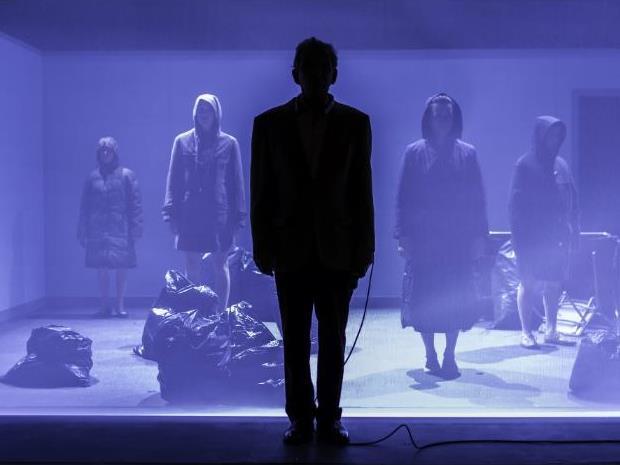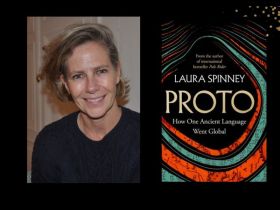The centenary of Ireland’s 1916 Easter Rising – the short-lived rebellion against British rule which ultimately led to the establishment of the Republic of Ireland – has been widely celebrated this year, including several Australian tours facilitated by the Embassy of Ireland. Such celebrations are more than appropriate given the strong historical connections between Ireland and Australia, which began with Irish-born convicts arriving on the First Fleet in New South Wales in 1788.
By the following century, following a sustained period of assisted immigration in the 1830s-1850s, Australia’s Irish population was considerable. By 1846, 26% of Sydney’s population was Irish-born. A similar situation existed in Victoria; in 1871, when the state’s population numbered 100,468, more than one in four Victorians was born in Ireland. It’s little wonder than the influence of our Irish heritage remains strong today – as evidenced by this year’s Brisbane Festival, which includes a spotlight on contemporary Irish theatre.
‘I think they’ve clearly affected our national personality, if I can put it that way, and that stretches back to convict periods. That sense of Irish rebellion and Irish humour is, I think, part of what we think of as the kind of mythic Australian spirit, you know? That feels very clear to me, that the distrust of authority, taking the piss, all of those sorts of things are Irish characteristics which are embedded in our culture as well,’ said David Berthold, Brisbane Festival’s Artistic Director.
Read: Ten must-see shows at Brisbane Festival
That sense of connection and cultural similarity is also recognised by Irish musician, vocalist, and actress Camille O’Sullivan, who will soon tour Australia alongside Australian singer-songwriter Paul Kelly in Ancient Rain, a musical celebration of Irish poetry – including the works of WB Yeats.
‘I feel at ease in Australia and that we speak the same language when we respond emotionally to people, whether that is in humour or melancholy; I’d say we are both free-spirited, down to earth cultures,’ O’Sullivan said.
Jonathan Holloway, Artistic Director of Melbourne Festival – where Ancient Rain will be performed in October – describes Ireland as a nation that’s ‘been hugely influential on arts globally. It’s really punched way above its weight in terms of the influence that it’s had’.
As well as its rich musical and literary tradition and the Irish diaspora, Holloway credits the popularity of Irish culture to the unique circumstances of Ireland’s former occupation by the English.
‘I think it might be one of the few places in the world that has had a complex history that is still written about and communicated about in the English language. So in a way it’s not unlike the complex political situation that Poland has faced in the last hundred years or that Spain or France or Belgium have experienced over the past hundred years, all of which has translated itself into incredible outpourings of art and writing and music. The difference is that in Ireland it’s in the English language, so it translates very quickly into a parallel experience that can be understood by Australia,’ Holloway told ArtsHub.
Ireland’s bardic tradition
Ireland’s love affair with the arts – especially poetry, literature and theatre – has a long and proud lineage, according to Irish-born historian and curator Dr Richard Reid.
‘Way back in Gaelic culture, in Ireland in the medieval and even earlier Gaelic times – poets had a huge role to play in the major family structures. They had bards who extolled the virtues of chieftains and things like that, they had a recognised role in the – I can’t call it a court structure because there was no King of Ireland, if you like – but in the aristocratic structure of Ireland, the bards had a definite position to hold,’ Reid said.
‘And that was something that the ordinary people respected as well, they respected the ability of these men – they were mainly men – to sing the praises of the local chieftains and also to write other kinds of poetry about place and so on. So it became very embedded in the whole culture, the idea that you grew up with a poetic sense of place. And that’s translated very much into modern Ireland. It’s waning a bit now because I mean modernisation, globalisation is changing everything, but certainly there’s a huge respect there.’
The influence of Australia’s collective Irish heritage is not just visible in many aspects of our national character, as previously noted by David Berthold; it has also influenced our artistic culture.
‘The first really big influence is in terms of ballad-making and that comes through “John O’Brien” [a pseudonym used by the Yass-born Father Patrick Hartigan] in the 1920s in Around the Boree Log – it was a book, or a series of poems rather, ballad poems. And it was right up there, it was one of the best-sellers in Australia – and you could buy it in Dublin. You can still buy it in Dublin! And that’s a rather amazing, on-going cultural influence of the Irish,’ said Reid.
The Irish-Australian influence can also be traced in convict poetry and song; in the many bush ballads and poems published in The Bulletin (co-founded in 1880 by John Feltham Archibald, born to an Irish Catholic family in Kildare, now known as Geelong West, in Victoria in 1856) and in the 20th century in the poems of Christopher Brennan, and the writings of Mary Durack, Frank Hardy, and many others – few of whom are lionised in the way that Ireland celebrates its writers today.
Stunted roots
Visitors to Dublin are often struck by the many sculptures around the city celebrating Ireland’s great writers, such as James Joyce, Oscar Wilde, Brendan Behan, James Clarence Mangan and Patrick Kavanagh. It’s a very public sign of one aspect of Irish culture, the respect for and celebration of writers, that hasn’t taken root in Australia the same way that other traits transplanted by our Irish forebears have. Which begs the question – why is the Australian public more suspicious of artists than welcoming of them, unlike our Irish forebears?
Ben Kidd is the English-born Artistic Director of Dublin-based theatre company Dead Centre, who are presenting three works at this year’s Brisbane Festival. He cautions against believing that Australia’s public cynicism about the value of the arts is unique to this nation.
‘I don’t know anybody, and certainly not anybody who works in the arts, who doesn’t complain that their own culture – wherever they are – doesn’t respect the arts enough. And maybe this is because I’m an Englishman working in and based in Ireland, but I hear Irish people say exactly the same thing. “Oh, our culture doesn’t respect the arts enough.” I think everyone except the Germans has this complaint,’ he laughed.
‘But if someone in Ireland said that to me, I’d say “hang on!” because I think you’re right. There’s something, I think it’s a real respect for stories and storytellers [in Ireland]. And as I said, I come from England and it’s a very similar culture to Ireland in most way, very similar, but then when you see the differences they’re very interesting and informative.
‘Sometimes I’ll be sitting with people and they’ll be discussing what their favourite James Joyce short story is in Dubliners – and these are people who I don’t think of as particularly literary people. It does feel like it’s in the culture a lot more in Ireland, do you know what I mean?’
When culture is revolutionary
Professor Kevin Whelan, from the University of Notre Dame in the USA, has noted of Ireland’s vibrant literary culture: ‘The most striking feature of the Irish Revolution in world terms is that the cultural revolution precedes the political revolution.’
The Easter Rising of 1916 fanned the flames of rebellion against British rule, but the sparks of that rebellion began with the Irish literary revival of the late 19th and early 20th century – including the foundation of the Abbey Theatre, Ireland’s first national theatre. Many of the poets of the day – among them Joseph Plunkett and Padraic Pearse – would go on to fight in the Easter Rising.
Had Australia’s great wave of assisted Irish immigrants of the 1830s-1850s come a few decades later – after the Irish literary revival rather than before it – might the Irish reverence for artists have taken root in Australian soil along with other traits we do still share? Might Australians have been more welcoming of our writers and artists? We may never know.
But one thing is certain – that the sense of grappling with the question of what it means to be Irish, which helped spur the Irish literary renaissance continues to this day – just as contemporary Australian artists interrogate what it means to be Australian here and now.
‘I know novelists and people of my generation – and I’m in my 30s – have struggled with the question of “How do I shake off the Hiberno-English, the Irish-isms. How do I not sound like a parody of myself?” Do you know I mean?’ said Dead Centre’s Ben Kidd.
‘We’d like to feel like our work is completely from Dublin – it’s made from the streets of Dublin, and made from the feeling of what it’s like to be alive there, and is completely of Dublin – and you can’t make work in a place without it being from the place.’
Dead Centre at Brisbane Festival:
Souvenir – Theatre Republic, La Boite Studio, 6-10 September
Lippy – Queensland Performing Arts Centre, 14 – 17 September
Chekhov’s First Play – Brisbane Powerhouse, 21-24 September
www.brisbanefestival.com.au
Paul Kelly and Camille O’Sullivan with Feargal Murray: Ancient Rain
Dublin Theatre Festival (World Premiere): 29 September 2016
Melbourne Festival (Australian Premiere): 12 – 15 October
Merrigong Theatre, Wollongong: 26 – 29 October
Canberra Theatre Centre: 2 – 5 November





